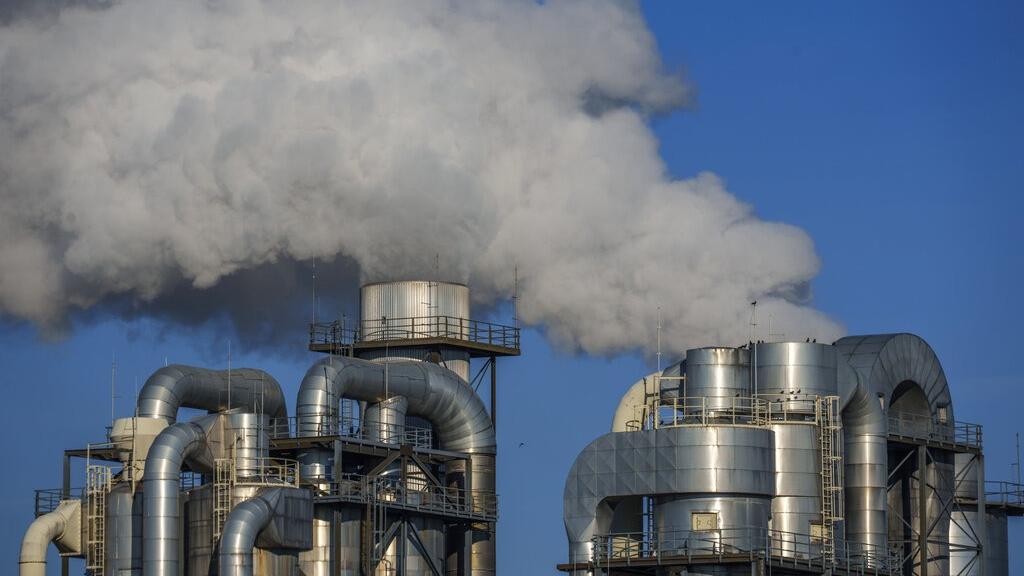 In this file photo dated Oct 28, 2021, smoke rises from a chimneys at a factory in Heiligengrabe, Germany. (PHOTO / AP)
In this file photo dated Oct 28, 2021, smoke rises from a chimneys at a factory in Heiligengrabe, Germany. (PHOTO / AP)
LOS ANGELES- Greenhouse gas concentrations, global sea level and ocean heat content reached record highs in 2022, according to an annual review of the global climate published online on Wednesday.
The State of the Climate report, the 33rd annual assessment compiled by the National Centers for Environmental Information (NCEI) at the US National Oceanic and Atmospheric Administration, is based on contributions from more than 570 scientists in over 60 countries.
It provides the most comprehensive update on Earth's climate indicators, notable weather events and other data collected by environmental monitoring stations and instruments located on land, water, ice and in space.
According to the report, Earth's greenhouse gas concentrations were the highest on record in 2022.
The global annual average atmospheric carbon dioxide concentration was 417.1 parts per million (ppm) last year, which was 50 percent greater than the pre-industrial level, and 2.4 ppm greater than the 2021 amount
Carbon dioxide, methane and nitrous oxide - Earth's major atmospheric greenhouse gases - once again reached record high concentrations in 2022, according to the report.
The global annual average atmospheric carbon dioxide concentration was 417.1 parts per million (ppm) last year, which was 50 percent greater than the pre-industrial level, and 2.4 ppm greater than the 2021 amount.
ALSO READ: Scientists: Climate change role in July heatwaves 'overwhelming'
It was the highest measured amount in the modern observational records as well as in paleoclimatic records dating back as far as 800,000 years, according to the report.
Warming trends continued across the globe. A range of scientific analysis indicate that the annual global surface temperature was 0.25 to 0.30 degree Celsius above the 1991-2020 average.
The year 2022 was among the six warmest years since records began in the mid to late 1800s, according to the report.
ALSO READ: EU greenhouse gas emissions fall 3% in the first quarter
 A man pours cold water onto his head to cool off on a sweltering hot day in the Mediterranean Sea in Beirut, Lebanon, July 16, 2023. (PHOTO / AP)
A man pours cold water onto his head to cool off on a sweltering hot day in the Mediterranean Sea in Beirut, Lebanon, July 16, 2023. (PHOTO / AP)
La Nina conditions in the equatorial Pacific Ocean that began in mid-2020, with a short break in 2021, continued through all of 2022, according to the report.
Heatwaves shattered temperature records across the planet, according to the report. In July, a 14-day heatwave swept through western Europe.
Record-breaking summer heat in central and eastern Asia, particularly in the Yangtze River basin, led to a devastating drought that affected more than 38 million people and caused a direct economic loss of $4.75 billion, according to the report.
Warming trends continued across the globe. A range of scientific analysis indicate that the annual global surface temperature was 0.25 to 0.30 degree Celsius above the 1991-2020 averageMeanwhile, ocean heat and global sea level reached new record highs in 2022.
Global mean sea level was the highest on record for the 11th consecutive year, reaching about 101.2 mm above the 1993 average when satellite altimetry measurements began.
The Arctic and Antarctica also experienced a variety of extremes in 2022.
The Arctic had its fifth-warmest year in the 123-year record. Several landfalling atmospheric rivers brought an extraordinary amount of precipitation over Antarctica in 2022.
Tropical storms brought devastation to many areas across the globe last year. There were 85 named tropical storms during the Northern and Southern Hemisphere storm seasons in 2022, according to the report.
Climate experts warn that extreme weather events are becoming more common due to climate change, and they are affecting every corner of the world.
READ MORE: Tokyo area on red alert for heatstroke as summer heat lingers
"This annual physical of the Earth system serves present and future generations by documenting and sharing data that indicate increasingly extreme and changing conditions in our warming world," said NCEI Director Derek Arndt. ■


